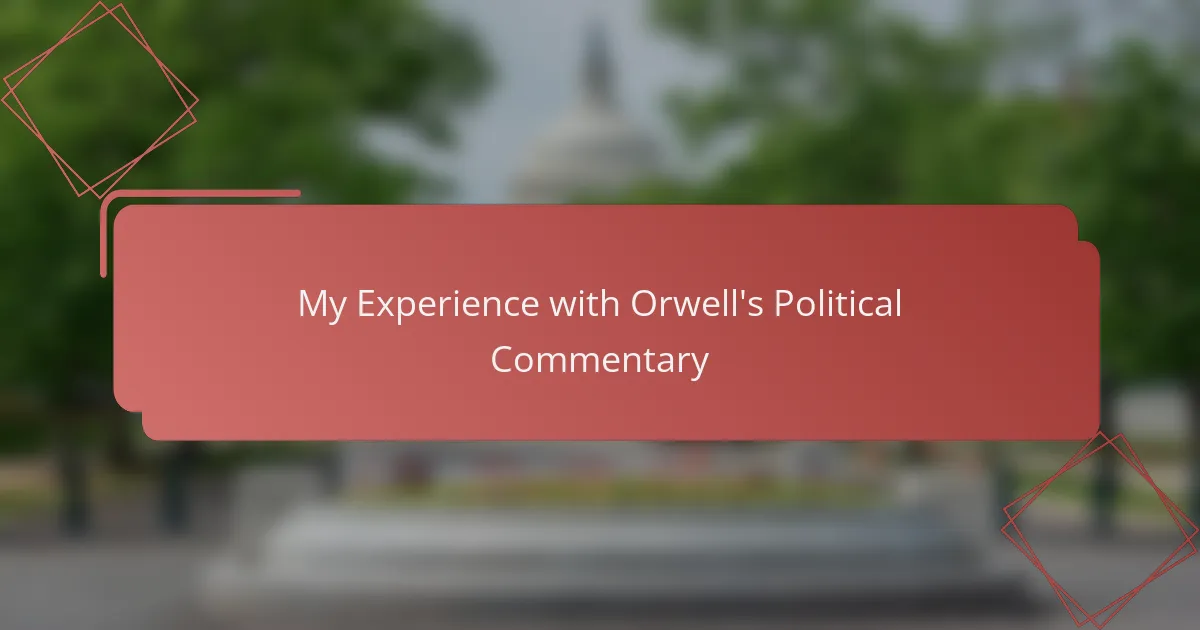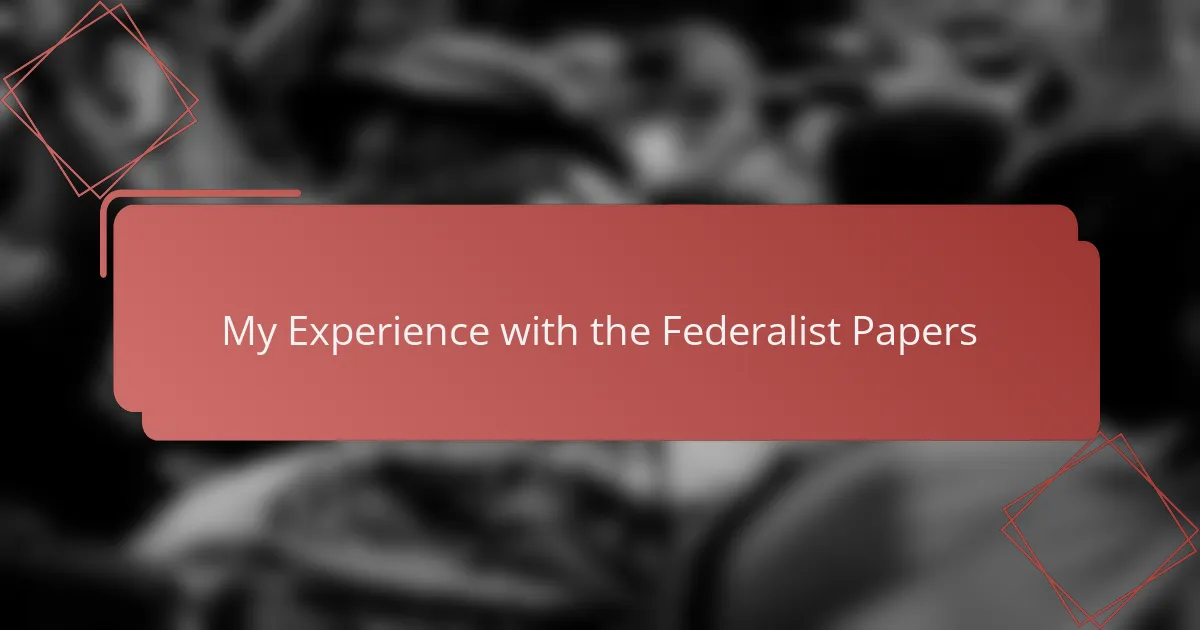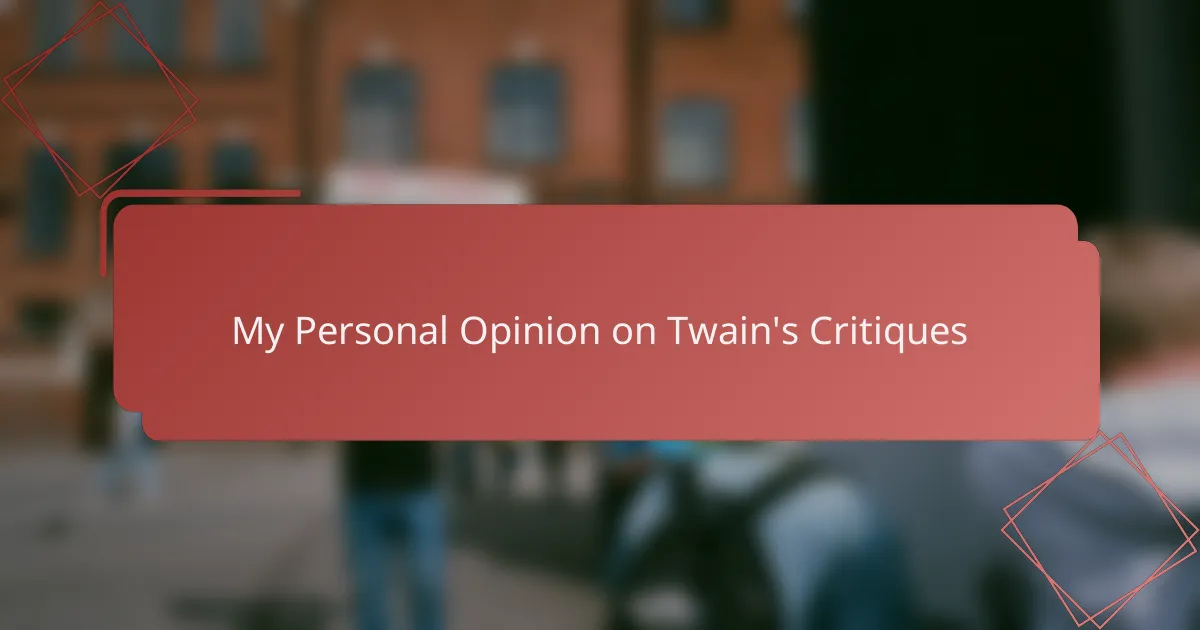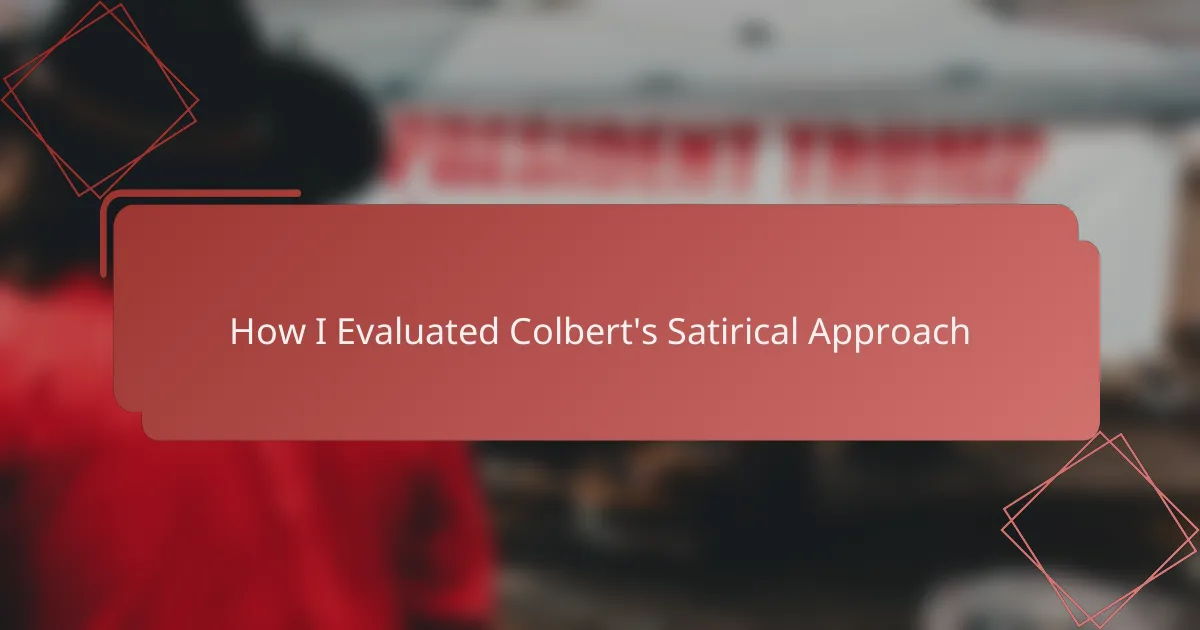Key takeaways
- Political satire, like Orwell’s work, employs humor and irony to provoke thought and critique political systems, encouraging deeper engagement from readers.
- Orwell explores themes such as power misuse, truth distortion, and the struggle between the individual and the state, remaining relevant in contemporary discussions.
- His use of storytelling, allegory, and irony reveals complex political critiques, prompting readers to recognize manipulative language and propaganda techniques.
- Applying Orwell’s insights helps identify modern political language tactics and the implications of surveillance and misinformation on society.
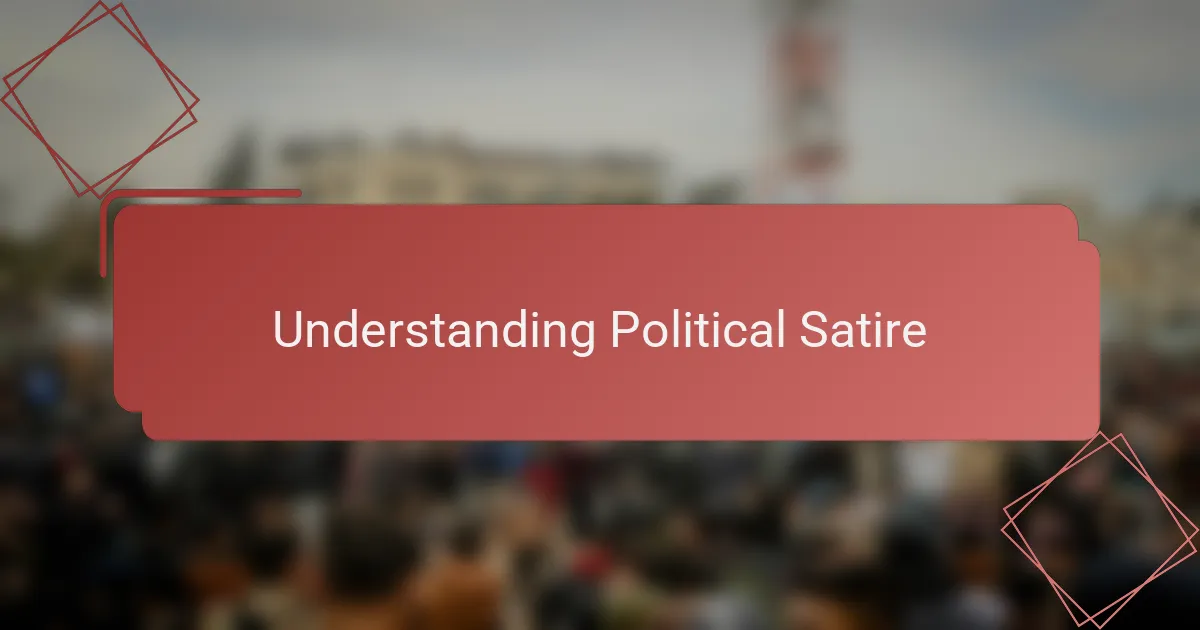
Understanding Political Satire
Understanding political satire has been essential in grasping Orwell’s work for me. Satire uses humor and irony to criticize political systems, a method Orwell mastered to reveal uncomfortable truths. When I first read his essays, I felt a mix of admiration and unease—admiration for his sharp wit, unease because his insights hit so close to home.
What strikes me most is how satire, unlike straightforward criticism, invites readers to think and reflect, often catching them off-guard with its cleverness. Orwell’s political commentary is not just clever; it’s a call to awareness wrapped in irony. Experiencing this, I found myself re-evaluating how I perceive media and politics.
Here’s a simple comparison to clarify what sets political satire apart from traditional commentary:
| Aspect | Political Satire vs Traditional Political Commentary |
|---|---|
| Purpose | Satire aims to expose flaws through humor and irony; traditional commentary often aims to inform or persuade directly. |
| Emotional Impact | Satire engages by provoking thought and amusement; traditional commentary seeks understanding and agreement. |
| Style | Satire uses exaggeration, sarcasm, and wit; traditional commentary relies on facts and straightforward analysis. |
| Audience Engagement | Satire invites readers to uncover hidden meanings; traditional commentary addresses issues plainly. |

Key Themes in Orwell’s Works
Orwell’s works often explore the misuse of power and the dangers of authoritarianism. I remember reading 1984 and feeling a chilling sense of how easily truth can be manipulated. His commentary on surveillance and propaganda felt eerily relevant, making me question how freely we really think today.
| Theme | Orwell’s Commentary |
|---|---|
| Power and Control | Examines how regimes use fear and manipulation to maintain authority. |
| Truth and Reality | Explores the distortion of facts to control the public’s perception. |
| Individual vs. State | Focuses on the struggle for personal freedom against oppressive governments. |
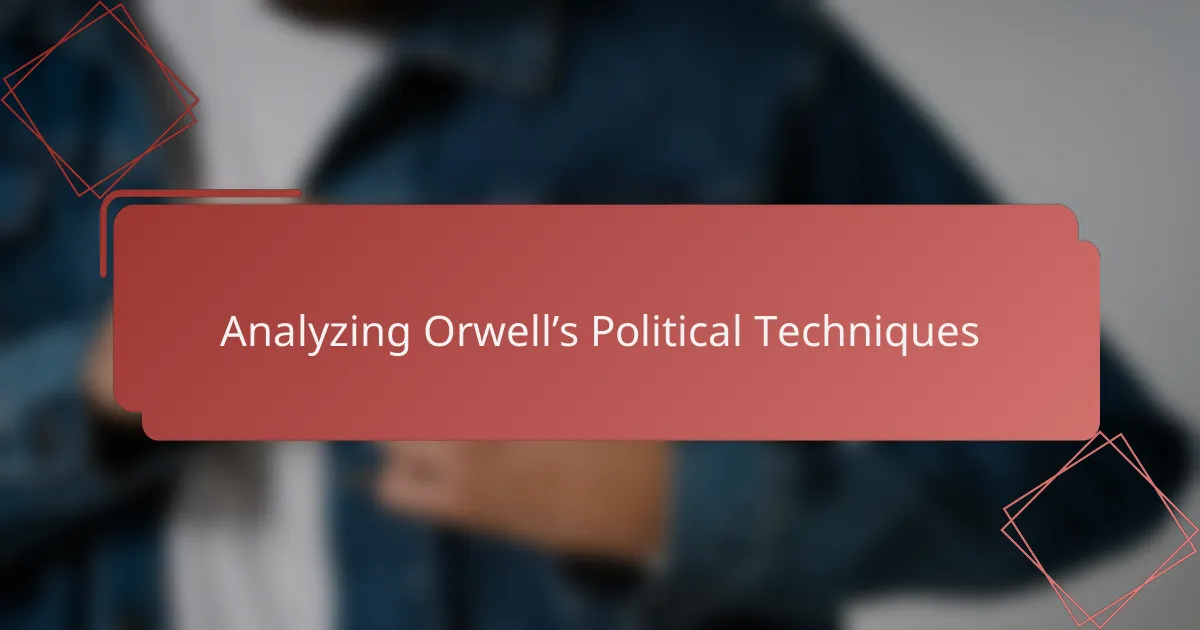
Analyzing Orwell’s Political Techniques
Orwell’s political techniques often rely on simple yet powerful storytelling combined with biting irony. When I first encountered his use of allegory, particularly in Animal Farm, I was struck by how the farm animals symbolized real political figures and movements. It made me realize how storytelling could make complex political critiques both accessible and emotionally resonant.
What I find most compelling is Orwell’s skill in exaggeration and paradox to expose hypocrisy. For example, his concept of “doublethink” isn’t just a clever term—it feels like a mirror held up to real-world political doublespeak. Have you ever noticed how politicians sometimes twist language to serve contradictory agendas? Orwell’s sharp observations pushed me to pay closer attention to such manipulations in everyday discourse.
Finally, Orwell’s technique of blending factual events with imaginative scenarios creates a sense of urgency that sticks with you. Reading his essays, I often felt a personal challenge: How do I recognize propaganda when it’s cloaked in both truth and fiction? His approach feels less like dry analysis and more like an invitation to question everything, which is why his political commentary remains so impactful for me.
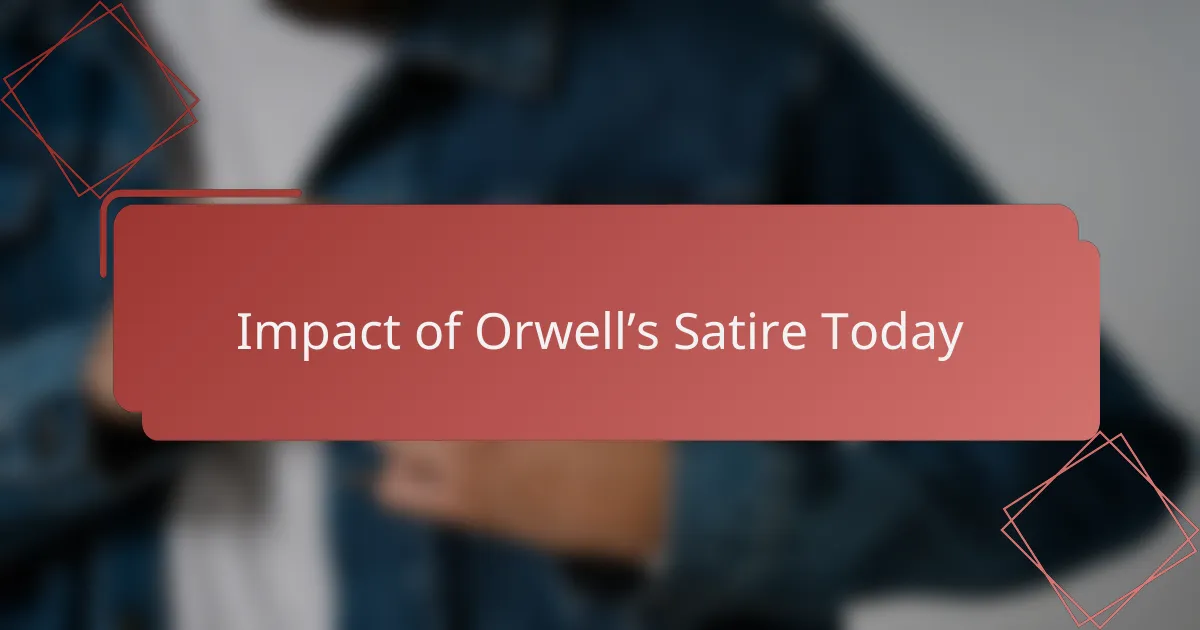
Impact of Orwell’s Satire Today
Orwell’s satire still hits home today, revealing how power can twist truth and language. From my perspective, seeing his themes in modern politics feels like a warning echoing across decades. It’s unsettling yet eye-opening to realize how relevant his insights remain.
| Aspect | Orwell’s Satire (Then) | Orwell’s Satire (Today) |
|---|---|---|
| Language Manipulation | Newspeak as a controlled language | Political spin and euphemisms in media |
| Surveillance | Big Brother’s constant monitoring | Mass data collection and online tracking |
| Truth and Reality | Propaganda shaping facts | Fake news and misinformation campaigns |
| Impact on Society | Suppression of dissent | Polarization and censorship debates |
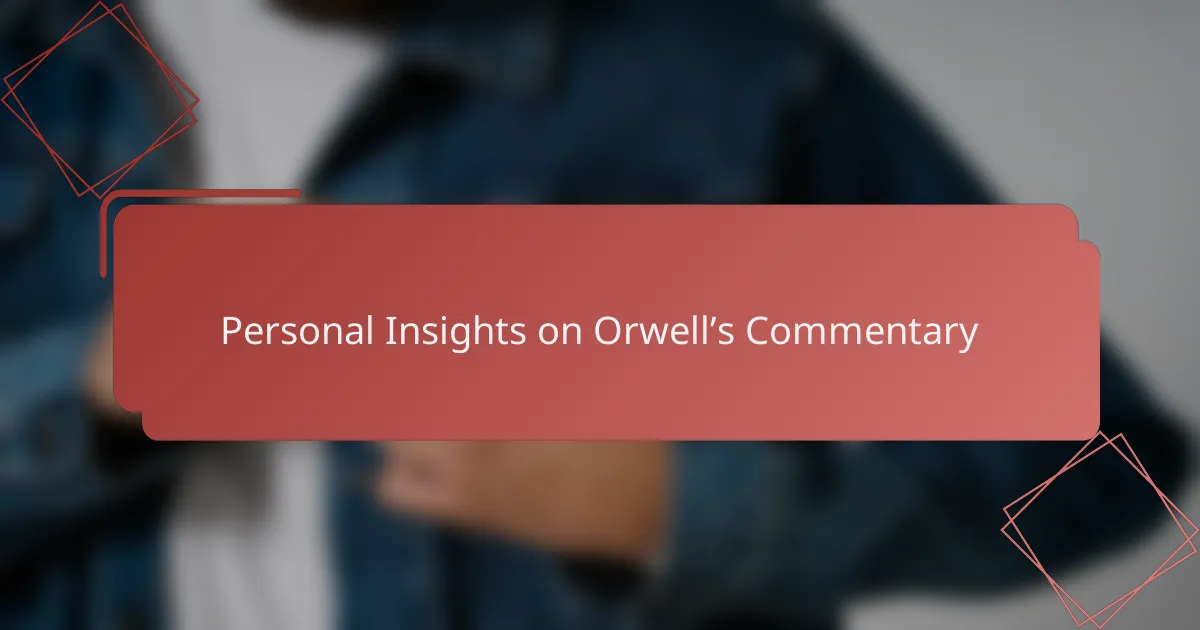
Personal Insights on Orwell’s Commentary
Personal Insights on Orwell’s Commentary
Reading Orwell’s political commentary felt like stepping into a mirror reflecting my own frustrations with modern governance. His sharp critique of propaganda and authoritarian language really resonated with my experience observing political speeches today. I remember feeling a mix of admiration and unease, recognizing how his warnings still apply in our digital age.
| Aspect | Orwell’s Political Commentary |
|---|---|
| Language Use | Direct, critical, exposing propaganda tactics |
| Focus | Power manipulation and authoritarian control |
| Relevance Today | Highly relevant in analyzing media spin and political doublespeak |
| Emotional Impact | Evokes alertness and skepticism towards political messaging |
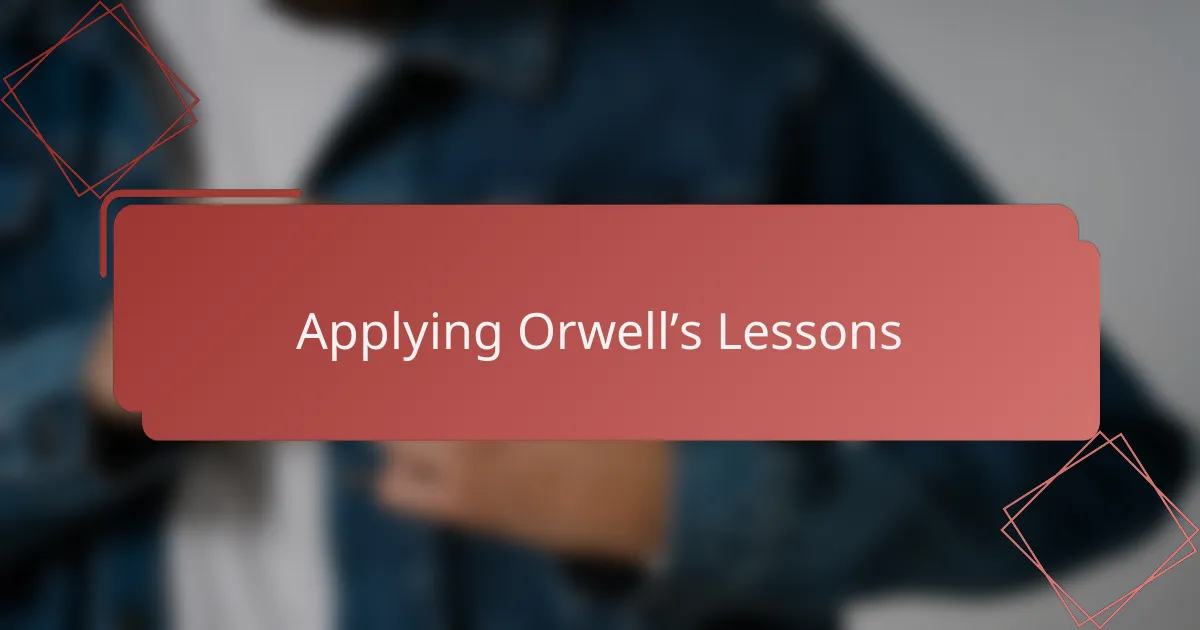
Applying Orwell’s Lessons
Applying Orwell’s lessons has deeply shaped how I view modern political discourse. Orwell’s sharp critique of language manipulation made me more attentive to the subtle ways politicians twist words to control narratives. I recall feeling shocked during a recent debate when a phrase that seemed innocent on the surface was actually loaded with connotations designed to silence dissent—something Orwell warned about repeatedly.
| Orwell’s Insight | Modern Application |
|---|---|
| Political Language as Propaganda | Recognizing euphemisms like “collateral damage” to mask harsh realities |
| Doublethink and Contradiction | Spotting politicians who simultaneously support opposing policies without acknowledgment |
| Surveillance and Control | Raising awareness about digital privacy invasions masked as security measures |
